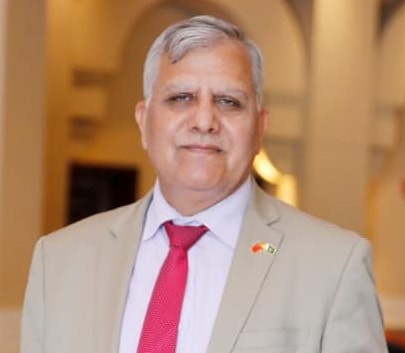By Prof. Engr. Zamir Ahmed Awan
China’s signaling of its keen interest in joining the Comprehensive and Progressive Agreement for Trans-Pacific Partnership (CPTPP) indicates its top leadership’s firm determination to deepen reform and follow opening-up at an even higher level.

The completion of negotiation in principle on a broad pact on investment between China and the European Union could mark a step quicker toward China’s joining the CPTPP.
China has conveyed its open attitude to joining the free trade agreement, signed among 11 countries in the Asia-Pacific region in 2018, after signing the Regional Comprehensive Economic Partnership with 14 participating nations in mid-November. China’s big diplomatic victory is considered to keep the US out and a huge dent in the EU-US alliance.
In December, China’s annual tone-setting Central Economic Work Conference stressed the need to proactively consider CPTPP membership as part of determinations to move accelerate with reform and opening-up across the board. President Xi Jinping also made a similar pledge at the 27th Asia-Pacific Economic Cooperation forum’s Economic Leaders’ Meeting, held via video link, on Nov 20. China’s interest in joining the trade agreement was declared early as May when Premier Li Keqiang held a news conference to close the annual National People’s Congress session.
Cui Fan, an international trade professor at the University of International Business and Economics in Beijing, said the decision of the China-EU investment deal negotiations could bring China a step faster to joining the CPTPP, as the agreement with the EU covers provisions also stressed by the CPTPP, including labor rights issues and State-owned enterprises’ conduct.
“It showed that China had adopted a flexible stance on negotiations in those areas that adhere to market principles and a people-centered philosophy,” he said.
CPTPP membership would meet China’s development interests, given China’s rapid economic development and close economic and trade ties with Asia-Pacific economies, even though some trade pact provisions would pose some challenges during the succession process.
China’s display of interest in the trade deal shows its readiness to promote trade and investment liberalization, and the easing and economic globalization.
“It will also help China maintain dialogue and consultation with its partners, build up consensus and work toward the establishment of a free trade area of the Asia-Pacific,” he said. Wang Huiyao, president of the Center for China and Globalization, a non-governmental think tank (NGO) based in Beijing, said the China-EU investment deal’s accomplishment would offer a potent stimulus for China’s accession the CPTPP. Joining the CPTPP would mean that China must implement practices in keeping with international standards in government procurement, subsidies, the conduct of SOEs, and labor, he said.
In fact, China was a closed and conservative society for several decades, and at the time of joining WTO in 2002, there were various concerns and voices. But time has proved that joining WTO was a blessing for China and the actual boost to the Chinese economy was very much visible after 2002. China has gained a lot after joining WTO. This immense success story has given considerable confidence to the Chinese for opening up and globalization. Incredibly, President Xi Jinping, since 2013, has played a useful role in making China a global player.
China has emerged as Economic power as well as a geopolitical power. China is playing a prominent role in the UN and other international institutions and contributing toward a global economy and global peace and security. An assertive China is vital for maintaining Peace and Stability around the globe. China is a mature and responsible country and will fulfill its global responsibility.
Author: Prof. Engr. Zamir Ahmed Awan, Sinologist (ex-Diplomat), Editor, Analyst, Non-Resident Fellow of CCG (Center for China and Globalization), National University of Sciences and Technology (NUST), Islamabad, Pakistan.
(The views expressed in this article belong only to the author and do not necessarily reflect the editorial policy or views of World Geostrategic Insights).







